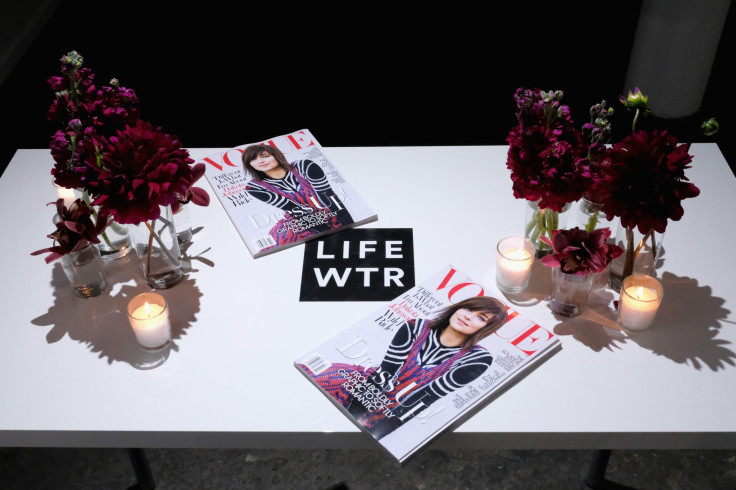Ex-Vogue Editor Slams Young Fashion Editors As Social Media 'Personalities'

Alexandra Shulman, the former editor of British Vogue, penned an essay Wednesday on the expectations of a newly emerging crop of magazine editors. Shulman doesn't consider this new wave of magazine editors to be journalists, instead equating them to "celebrities or fashion personalities" that have garnered a "substantial" social media following.
Published to the Business of Fashion's website, she examines this new practice in the essay, titled "What Makes a Great Magazine Editor?" Shulman discusses the work of editors from Condé Nast, which publishes Vogue and other popular fashion publications.
"Amidst all the turbulence, the word on the street — and certainly during the febrile month of fashion shows — is that the new guard of editors, who will take the reins going forward, will be less magazine journalists and more celebrities or fashion personalities with substantial social media followings," Shulman wrote Wednesday.
Shulman's feedback seemingly targeted her successor at British Vogue, Edward Enninful. Enninful, while not mentioned directly by name, frequently shares pictures of himself with top-tier celebrities like Nicole Kidman and Cara Delevinge on Instagram. He has accrued more than 608,000 followers on the photo sharing application.
"The new guard who will be stepping into the shoes of those that are leaving will undoubtedly have different skills," Schulman wrote. "I would suggest that the most successful will still need a passion for the core magazine that feeds the spin-offs. You can't leverage brand extensions off a withered core."
Condé Nast's American branch has seen the resignation of long-serving editors like Graydon Carter of Vanity Fair and Cindi Leive of Glamour. Hearst, Condé Nast's competitor, has also lost editors like Robbie Myers of Elle. Shulman claimed legacy fashion magazines are more interested in hiring "association" editors than those willing to put in "some effort."
"It has been interesting and educative to see over the years which of the more dilettante or famous contributors really put some effort into their contributions and which liked the idea of an association to the magazine without the tedious business of actually doing any work," Shulman wrote.
Shulman concluded her essay by advising magazine editors to invest in their print content, even if the "future may well be digital."
Many magazines have faced the challenges of adapting to the digital landscape. The pressure to conform digitally has caused several publications to cut back on print editions altogether.
Nylon Magazine announced in September it planned to shut down its print publication to prepare to go fully digital. Us Weekly also confirmed in March its plans to shut down its Los Angeles office entirely to "allow resources to be focused in other areas," said Jon Hammond, a spokesperson for magazine publisher American Media Inc.
Journalists have also adjusted to the digital takeover by utilizing social media in a variety of ways.
"Journalists who were early adopters and used social sites for both gathering information and broadcasting content have become a core part of many platforms," Adweek reported in August 2016.
© Copyright IBTimes 2024. All rights reserved.





















